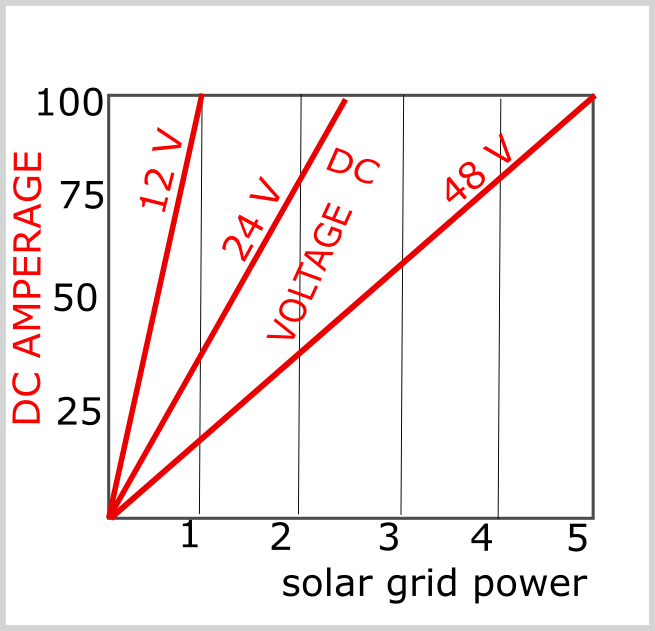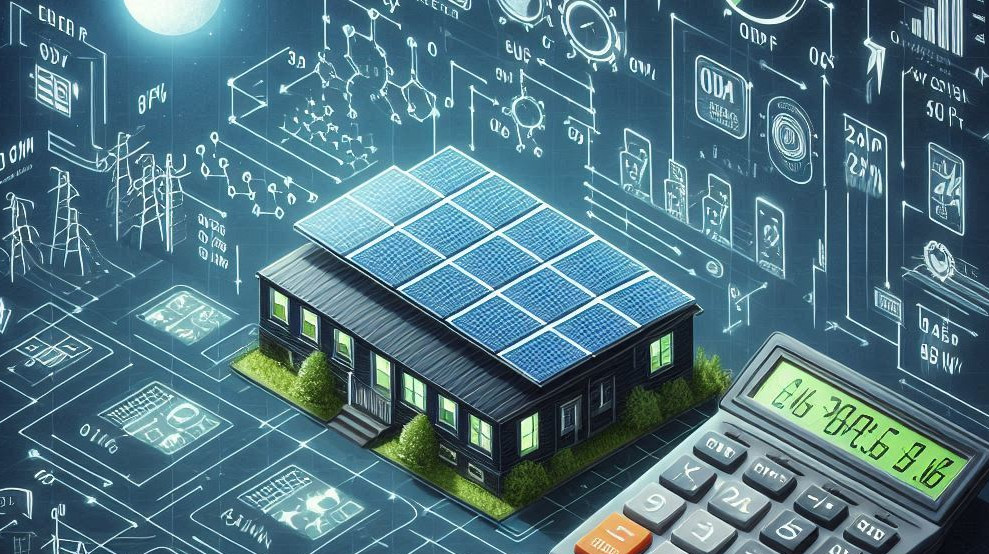Picking the right system voltage for your off-grid photovoltaic (PV) system is not just a technical decision but a pivotal one that can impact efficiency, cost, and longevity. At the heart of this decision is understanding your power needs and how they align with system capabilities.
DC Voltage for OFF grid system - 12 V or 24 V or 48 V
The size of your PV power plant is a big player in selecting the system voltage. Generally, solar installations up to 1 kilowatt (kW) often use a 12-volt setup. If you’re dealing with a more robust system, say between 2 and 3 kW, a 24-volt configuration is the way to go. For hefty setups around 5 kW, 48 volts becomes the gold standard.

Now, on to something crucial: keeping that DC current below the 100-amp mark. It’s not just about reducing stress on your system; it’s also about avoiding potential safety issues. Larger current flows can lead to overheating cables, a risk you definitely want to sidestep.
Cable length makes a surprising difference too. According to secondOhm’s law, resistance increases with cable length, which means energy loss. Keeping cables as short as possible is key. The longer your cables, the more you lose to resistance, which can hit your system’s efficiency hard.
Voltage is standardized in PV systems, most commonly at 12, 24, and 48 volts, each serving different capacity needs. For instance, a 12-volt system is common for small, starter installations, while 24 and 48 volts cater to larger, power-hungry setups. The choice of voltage directly influences not just the size of the inverter and batteries you need but can also affect your system’s overall performance.
When choosing your system voltage, think about your current and future energy demands. It’s always wiser to plan for a bit more than you think you’ll need, accommodating any future energy expansions without overhauling your system.
By optimizing your PV system’s voltage, you maximize efficiency, improve reliability, and extend the lifespan of your off-grid setup. Proper planning and a bit of foresight can go a long way in achieving a resilient solar system that meets your energy needs without unnecessary hiccups.


